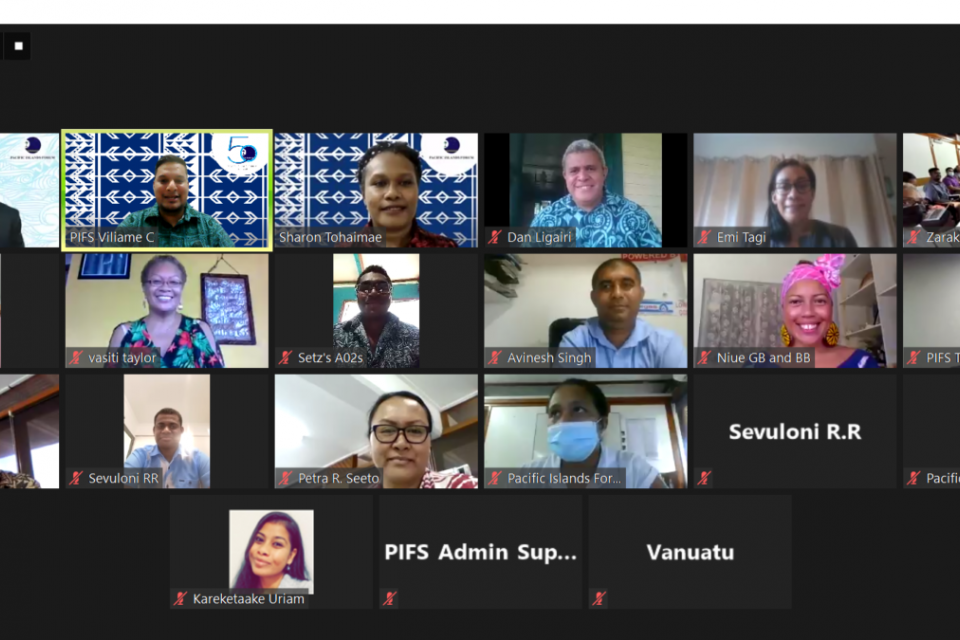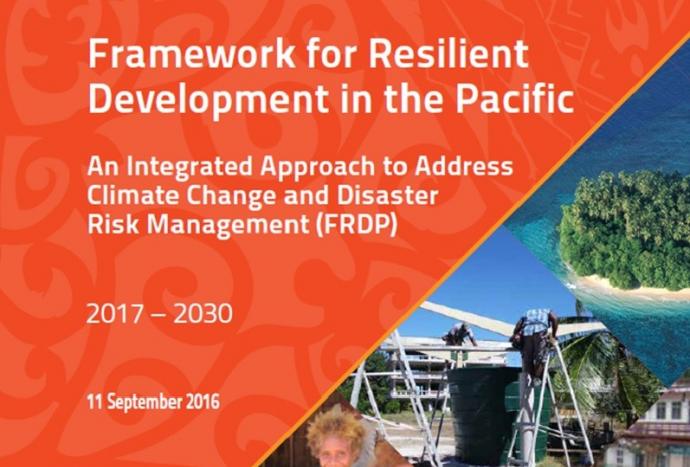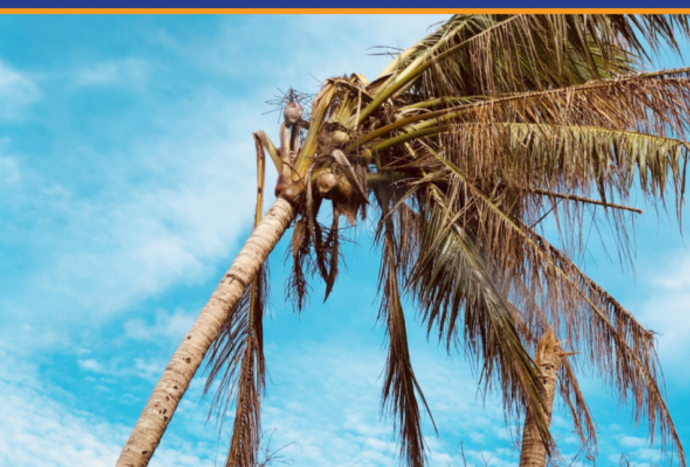Pacific Youth-led small grant Initiatives on Climate Change and Resilience launched

The Pacific Islands Forum Secretariat (PIFS) has awarded a range of youth-led initiatives building climate change resilience, involving 11 groups across the region. The recipients, chosen from more than 60 applicants for small grant support, are from Fiji, Niue, the Marshall Islands, Papua New Guinea, and Vanuatu. (Details at this link)
The virtual launch this month continues to demonstrate efforts to implement the Framework for Resilient Development in the Pacific (FRDP).
Supported by the Government of Australia through the Pacific Resilience Partnership, the projects cover a wide range of sectors including preserving traditional practices, strengthening mental resilience including through art, addressing water security, waste management and sustainable agro-forestry.
Addressing the launch event, PIFS Deputy Secretary General, Dr. Filimon Manoni congratulated the awardees and encouraged them to maintain commitment to assist and build the resilience of their communities.
“I’m really encouraged to note the interest from you to positively contribute to building resilience efforts within your communities. We received over 60 proposals that served to remind us of the cross-cutting impact of climate change and disaster risk, and that resilience cannot be constrained within one sector or one approach,” he added.
Ms. Emi Tagi, Acting Director, of the Pacific Climate Change Section within the Department of Foreign Affairs and Trade reaffirmed Australia’s commitment to climate action recognising the threat that climate change poses to the Pacific.
She said building resilience into every sector is most effective including gender and social inclusion. So, the role that youth plays is important.
Ms. Tagi added that “emerging young leaders in our communities play a critical role as the region faces the challenges of climate change together.”
PRP Youth Hub Chair, Mr. Sevuloni Rokomatu, acknowledged the ongoing support from the Australian Government and the Pacific Islands Forum Secretariat in facilitating such process in engaging our young people.
One of the youth recipients, Sabrina Taman from Santo Sunset Environment Network in Vanuatu shared her experience dealing with the impacts of on food gardens, homes, and livelihoods.
Ms Taman further highlighted that “this project on revival of traditional agricultural practices in remote communities is important for our climate resilience, particularly involving high school students to record traditional agricultural practices as a means of adaptation.”




